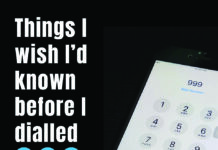What do you think has formed you as the person you are today?
This is something I’m constantly curious about, not only about myself, but many of my clients are trying to make sense of this too, especially when they keep repeating the same negative patterns.
There are many views as to whether it’s Genetics or Environment that forms us. I believe there are many more factors involved. If it were that simple, why are siblings so different from each other, despite having the same parents and having been raised in the same family system.
Blueprints we live our lives by
I would like to explore the blueprints that impact us and our relationships, and how that blueprint was created. Is it conditioning? Learned behaviours? Or what we believe is the norm?
My Blueprint was created in childhood.
As a child I didn’t feel my parents loved me – I felt it had to be my fault that I must be unlovable. Those feelings were very damaging, as they affected my self-worth. Those beliefs became embedded into my very being, with every event endorsing those beliefs that I really was worthless. I was very hard on myself, never satisfied and constantly beating myself up. I couldn’t accept that it was ok to make mistakes. And so that pattern continued for many years; I felt I wasn’t good enough, resulting in me being a people pleaser. Whatever I did just didn’t feel like it was good enough. I constantly felt under pressure to do better in all areas of my life.
● A better daughter
● A better pupil
● A better friend
● A better employee
● A better wife
● A better mother
It was really stressful and hard work as I constantly compared myself to others, believing I didn’t measure up. Contorting myself in ways and behaviours that didn’t always feel right. But, if it worked for them, then maybe I should use their blueprint. Needless to say, it didn’t work, and all that happened was that I lost me – My Identity. I didn’t know who I was!
Are The Rules We Live Our Lives By Ours or Others?
As children, we have to comply with our caregivers’ rules, as the alternative is rejection, and even when we comply, we can feel rejected. But we still try, because we crave their love and affection. So, we often take on others’ rules into adulthood.
Which are the rules, rituals and habits that you have chosen to live your life by, and which are those you follow to please others?
Influences we grew up with and how they affect us and relationships
Each family has its rituals and rules, things we don’t necessarily think about or even question. It feels normal to us. It includes how you communicate and handle disagreements and difficult situations. For example, one family may be very vocal, handling those situations very vocally, expressing their frustrations loudly. After which everything goes back to normal, whether the issue is resolved or not. In other families, one or other may withdraw, refusing to talk about it, as it feels overwhelming. They often ignore the whole situation and finally people talk to each other, but not about the situation – instead of brushing it all under the carpet, leaving things unresolved.
In some families, expressing anger is taboo, whilst for others it’s commonplace, often with someone acting out, sometimes resulting in abusive behaviour, either physical or emotional. These learned behaviour patterns from the family of origin are usually carried into other relationships as adults.
If your partner is vocal during a dispute, and you are not used to it, you are likely to withdraw, fearful of the repercussions. Your partner may not understand this, wondering why you withdraw and don’t want to talk and find a resolution.
I recall working with one couple in which the husband could not cope with his wife raising her voice – and constantly berated her. He had grown up in a family where raised voices or arguments never happened, it felt so alien to him. As a result, she felt shut down, unable to express her frustration at their teen kids (mums will relate to this one).
If you have grown up in an abusive and violent family system, it will feel like it’s normal, and so you may well get into a similar relationship as an adult. After all, it’s what you know, it’s normal, isn’t it? As a result, being with a partner who is kind and loving can feel unfamiliar and uncomfortable. You may feel you want to change them or even walk away.
Subtle Messages That Have An Effect On Us
Comments about appearance, especially around weight and food can have a devastating effect on us. As do comparisons to siblings and their achievements. They aren’t always made with malice, but they can have a lasting impression on the person receiving those comments, carrying them into adulthood and their relationships. If your partner then makes comments it can confirm your negative beliefs about yourself.
Assumed Roles In Relationships
Very often in relationships, couples take on roles – or assume their partner will – and these are based on their family experiences. For example, if mum waited on everyone and did all the household chores, including food shopping, cooking, cleaning and washing. If dad took on all financial responsibility, paying the bills, making decisions on how money was spent, it’s likely to be assumed that is the norm. There are many more examples, can you think of any that may cause conflict in your relationship? Parenting? Household repairs?
Cultural Rules
In our multicultural society, cultural rules and customs can have a huge effect. I see second or third-generation young adults, whose parents have strong cultural customs that they expect their children to uphold, even as independent adults. But these young adults are living in a society with very different rules, laws and customs. This often causes conflict between parents and their community. Parents’ beliefs may influence who they are allowed to mix with, have relationships with and marry. It can create conflict within themselves, and how they manage both cultures, torn between familial cultural rules of their family, and those in which they are living now.
Having a foot in both cultures, but equally not feeling like they belong to either. They can lose their sense of identity, not feeling able to live their lives as they want.
The Jigsaw Puzzle Pieces That Make Me Who I Am
Over the years, I have come to see my life and the different parts of me as a huge jigsaw puzzle. As I learn more about myself and how I fit into the world, I discover yet another part of the puzzle. At other times I may find a part that doesn’t fit anymore, and I discard it. I no longer feel I have to be a people pleaser, that I am good enough. That doesn’t mean I don’t challenge myself to improve, but I no longer automatically feel I’m a failure, and I accept that we all make mistakes.
Instead of beating myself up, I learn from it. Instead of immediately falling back into those familiar negative beliefs and patterns of not feeling good enough, or that it must be all my fault, I have become curious about why I feel like that, and whether those thoughts really are true. Gradually, I have amended that blueprint.
‘Engineers created a basic blueprint to build a bridge, but that blueprint has been amended and adapted many times to make a stronger and better bridge.’
It’s not all negative – those negative beliefs have also provided me with some great positives too. It has given me drive and tenacity, and grim determination in situations in which I may otherwise have given up on. I have learned that instead of believing I am a failure, I am reframing those beliefs into working on being the best version of myself. When I find myself feeling it must be my fault, I step back and consider whether I have played a part in it and take responsibility for that part and not all of it. Because I know how it felt to not measure up to others’ expectations, I have compassion for others who feel that way.
Breaking away from the shackles that keep us a prisoner in our life
Maybe you would like to read the above comment again. You too don’t have to carry those negative beliefs about yourself with you. Those blueprints are often hardwired into us, and it can be hard to make the changes. But staying stuck in those negative patterns are likely to affect you and your relationships. So, take small steps, be kind and compassionate to yourself.
Wendy Capewell is a Psychotherapist, Relationship Specialist, author and podcaster.
www.wendycapewell.co.uk
info@wendycapewell.co.uk
Love~Listen~Talk~Repeat podcast –
https://bit.ly/3f7NMAX











